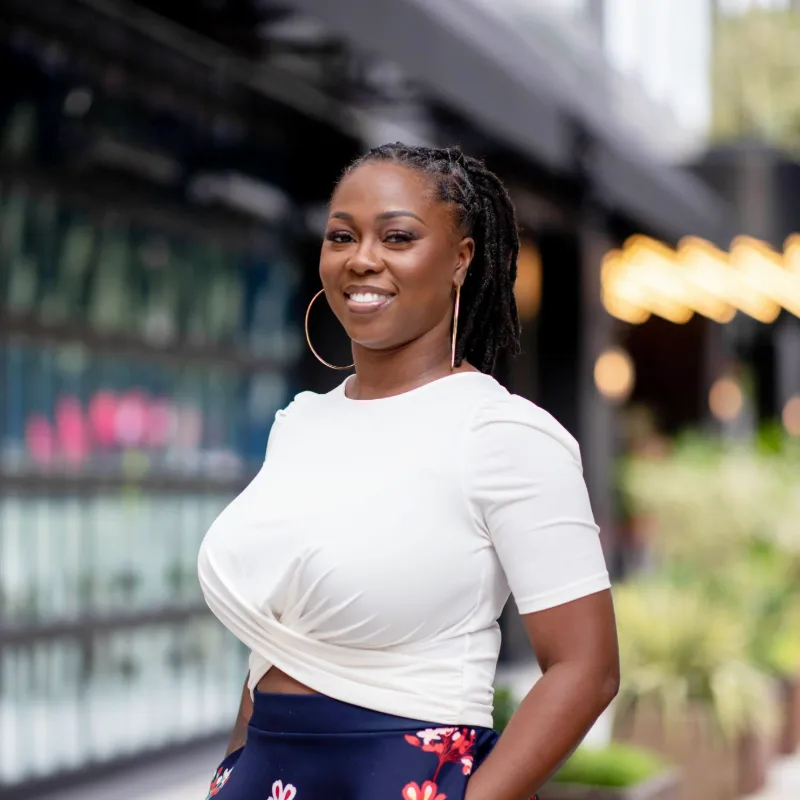Bringing new life into the world can be a profound and transformative experience. However, for Black mothers, this journey often comes with unique challenges and disparities that can impact both their health and the well-being of their babies. In 2024, Black women in the United States are still 3-4x more likely to die from pregnancy related complications than white women. In celebration of Black Maternal Health Week (April 11-17, 2024), we are sharing stories from Black mamas on staff at Provide who have agreed to share their experiences to shine a light on systemic issues.
By Fatimah Gifford, Executive Director
I love being a Black moma! I have very early memories of watching my moma and feeling how she was such an amazing parent to my brothers, sisters, and me. I always knew that when I grew up and had children, I was going to be a moma just like her.
Being a Black moma is rooted in all of the things that I attribute to my culture and my ancestors, all connected and resonating with my earliest memories with my moma. I realized that when I fell in love with being a Black moma, I fell in love with my culture and my Blackness. And my love for being Black is what keeps me in this work.
My journey to becoming a parent began at a very young age, or at least it felt that way for me. When I became pregnant at 19 years old, as a freshman in college, with my first child, I actually didn’t know what my options were.
They weren’t given to me. I remember speaking to my doctor with my moma in the room, and I had no clue what I was going to do or what decision was the best for me to make. So, I reflected on the times when I saw my moma struggling or making tough decisions, and I just assumed that I was going do the same while I have my baby.
I did not have a support system in place. I did not have the financial means or resources in place to take care of a child. But I think the thing that I really anchored myself in was the notion that I had to be this strong Black moma that I was so used to having in my life.
As I went through my pregnancy, I had so many questions that went unanswered by my doctor. I wanted to know what my experience would look like, and what I should expect during labor. He dismissed every single thing that I would come to him about. I never got answers from any of the healthcare professionals that were a part of my journey.
Then when I went into labor 3 1/2 weeks earlier than my due date, it became a nightmare. My doctor did not think that I needed pain medication during active labor, so I essentially was given over-the-counter medication to ease the excruciating pain that I was going through. I was a tiny 19-year-old delivering a nearly 9-pound baby. About 12 hours in, I started blacking out and losing blood because of the pain that I was going through. In my doctor’s mind, I was making all this pain up.
Luckily, my moma is also a nurse, and she was there for me that day. She stepped into action and found someone within the hospital who would listen to me. If it weren’t for her and some of the other nurses in that room, I don’t know if I would be here today to tell my story.
Because I was finally heard, I was able to get pain medication after 13 hours of labor. But at that time, it was too late: my baby was coming. I essentially had my first son without the assistance of medication that would’ve helped alleviate the pain I experienced, as well as the loss of blood and other fluids. I suffered many health issues for two years after my labor because of my experience. I don’t wish that for anyone.
Fast forward to now, I have two Black adult sons who are both incredibly brilliant, funny, humble, kind, and amazing human beings. I know that they learned how to be all those things from their father and me — because of course, I first learned these things from my moma. She was there to advocate for me as I became a moma for the first time, and she taught me how to be there for my children.
As Black folks, we deserve to have the same high-quality care that everyone else has. We should not have to demand that we are treated compassionately and with respect.
Learn More
- Check out our free virtual training, Supporting Black Clients Seeking Pregnancy Referrals.
- Four Ways to Address Racial Disparities in Pregnancy Counseling

